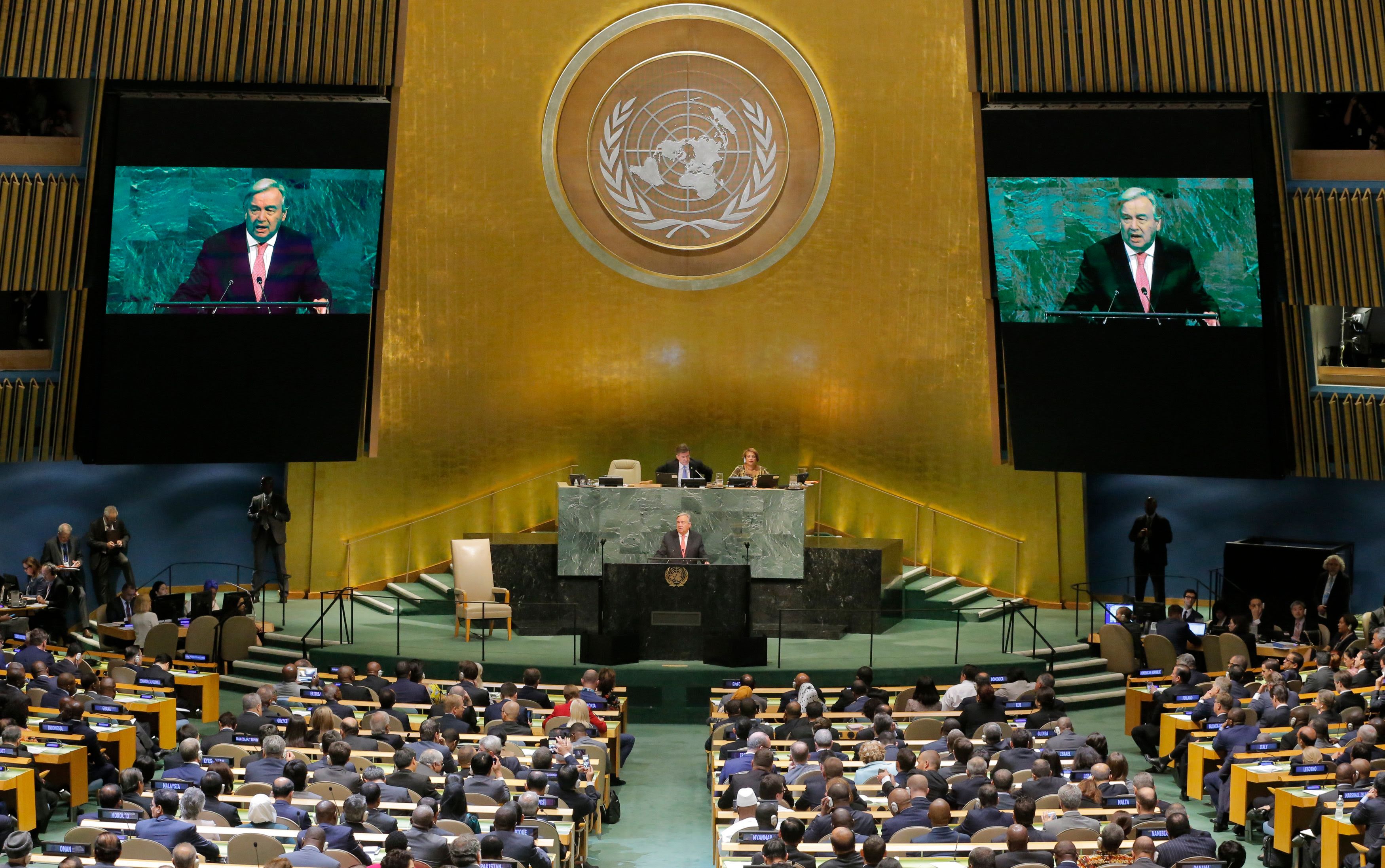September 18, 2018
Today, the 73rd session of the United Nations General Assembly opens in New York. So let’s ask a simple question: what good is the United Nations?
After all, the Security Council (UNSC) often seems like an anachronistic theater of obstruction where permanent members selected 70 years ago veto each other’s proposals for sport. Washington and Moscow have done so almost 200 times to protect their own interests.
Even when the UNSC does pass meaningful resolutions they are often spottily enforced or openly flouted – as people in Rwanda, Bosnia, Darfur, Palestine, and North Korea can all grimly attest. No doubt it’s better to have a forum for great power discussion than not, but you could be forgiven for thinking that this one isn’t quite fit for purpose.
But the United Nations is much more than the headline-grabbing Security Council.
The UN oversees half a dozen agencies that are dedicated to eradicating disease, hunger, and poverty all over the world.The World Food Program, for example, helps to feed 80 million people a year, mostly in war zones. UNICEF offered life-saving treatment to 4 million children for severe malnutrition in 2017. The UN Refugee agency provides assistanceto more than 60 million people in 128 countries.
These agencies help vulnerable people in places where national governments either can’t or won’t act. In fact, even US National Security Adviser John Bolton – who never met an international organization he didn’t want to kick in the teeth – once went on record supporting their work.
Here’s the problem: those agencies are running short on cash as countries fail to pay their dues. Earlier this year, UN Secretary General Antonio Guterres warned of an unprecedented funding shortfall of $139 million, even after US-backed budget cuts.
You’ll almost certainly read about Security Council fireworks in the coming days – but the quieter drama, which affects many more people, will be whether Mr. Guterres is able to secure the funding that his agencies desperately need.
More For You
Most Popular
People gather outside the Tom Bradley International Terminal at Los Angeles International Airport to decry President Trump's travel ban on 19 countries which went into effect this morning.
5: US President Donald Trump added five new countries – Burkina Faso, Mali, Niger, South Sudan, and Syria – to the list of nations banned from traveling to the US.
US President Donald Trump, Ukrainian President Volodymyr Zelensky, German Chancellor Friedrich Merz, French President Emmanuel Macron, UK Prime Minister Keir Starmer, Italian Prime Minister Giorgia Meloni, Finland's President Alexander Stubb, NATO Secretary General Mark Rutte and European Commission President Ursula von der Leyen pose for a family photo amid negotiations to end the Russian war in Ukraine, at the White House in Washington, D.C., USA, on August 18, 2025.
REUTERS/Alexander Drago
With the release of its National Security Strategy, the Trump administration has telegraphed how the US intends to engage with allies, and what it expects from them.
© 2025 GZERO Media. All Rights Reserved | A Eurasia Group media company.
